| | From the Executive Director's Desk On August 18, we presented our 20th episode of our COVID webinar series, Saving Lives, Protecting Workers, that we co-sponsored with Rutgers LEARN and Jersey Renews. Since our first episode on March 17, we’ve had guest speakers including the Governor's Chief of Staff, Commissioner of Labor and Assistant Commissioners for Health, Education, Division of Family Services, frontline workers, union leaders, educators, activists and community members. These conversations have helped to build the strong communities we need, both in times of crisis and to address our everyday issues and concerns. The most powerful episodes have been when we hear directly from frontline workers and their representatives talking about first-hand accounts on working during a pandemic. We plan to continue this series into the Fall every Tuesday at 10 am as we cover topics such as preparing for hurricane season during a pandemic, the need for a workers’ right to refuse unsafe work, updates on school reopening plans and more. Please consider supporting WEC's COVID work including public and worker education, developing recommendations on how to re-open the state safely, providing one-on-one technical assistance, and advocating for enforceable protections for ALL workers. In Solidarity, | | 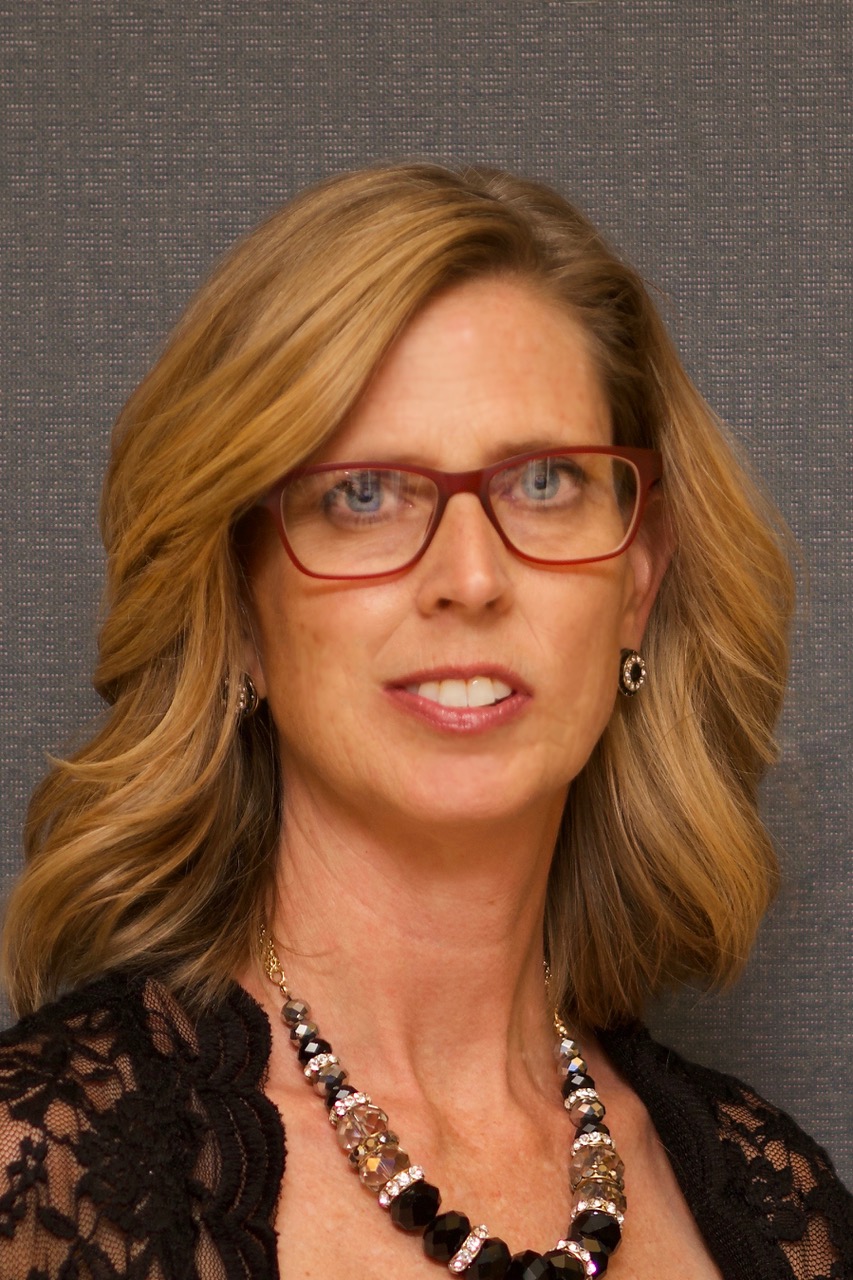 
Debra Coyle McFadden
Executive Director | | PS Join us tomorrow, Sept 1 @ 10 am for our weekly COVID webinar series, Saving Lives, Protecting Workers. Our topic this week is Labor Day Celebration & The Importance of Worker's Voice During the Age of COVID, with Special Guest Elise Bryant. Register here. | | | | Whistleblower Complaints Skyrocket During COVID-19 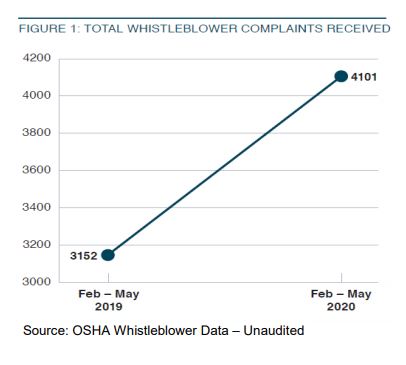 According to an August 14 investigative report from the U.S. Department of Labor’s Office of the Inspector General (OIG), OSHA received more than 4,100 complaints of illegal retaliation against whistleblowers during the first four months of the COVID-19 pandemic, from February 1, 2020, through May 31, 2020. This is a 30 percent increase compared to complaints received during the same four-month period in 2019. According to an August 14 investigative report from the U.S. Department of Labor’s Office of the Inspector General (OIG), OSHA received more than 4,100 complaints of illegal retaliation against whistleblowers during the first four months of the COVID-19 pandemic, from February 1, 2020, through May 31, 2020. This is a 30 percent increase compared to complaints received during the same four-month period in 2019. However, despite the urgency of enforcing public health and safety laws to stop the spread of a deadly virus, OSHA has reduced the number of whistleblower inspectors. It now takes 279 days – more than eight months – for OSHA to complete a whistleblower investigation, an 86 percent increase from 2010. “U.S. OSHA must act immediately and implement the inspector general’s recommendations,” said Marcy Goldstein-Gelb, also a co-director of National COSH. “Add staff. Cut red tape. Do whatever it takes to make protecting whistleblowers a priority. When workers can safely speak out, we can save lives in the workplace, and protect our families and communities.” Read the full National COSH press release here. | |  HEALTHY SCHOOLS NOW VIRTUAL CONFERENCE HEALTHY SCHOOLS NOW VIRTUAL CONFERENCE
COVID: INEQUALITY & SAFETY IN OUR SCHOOLS
In the time of COVID-19, school safety and health is a top priority. The pandemic put a spotlight on the inequality in our education system, something which has impacted students for decades. We will discuss school funding and facilities, the importance of having school health and safety committees and your Right to Know. In addition, we will look at COVID-19 school plans and how proper ventilation, cleaning and disinfecting are necessary to keep the virus at bay.
Join Us on Saturday, October 24th 10 am- 12 pm Click Here to Register | | | | | | | | | | | | |  | COVID-19 Week 25 Webinar
Saving Lives, Protecting Workers The Importance of Worker's Voice During the Age of COVID, with Special Guest Elise Bryant Tuesday, September 1 @ 10:00 Register Here HSN Virtual Conference
COVID: Inequality & Safety In Our Schools
Saturday, October 24th 10am-12pm Register Here Save the Date! Time for Turbines Virtual Event
October 21 & 22, 9 am - 1 pm
WEC Annual Membership Meeting Wednesday, December 2 Everyone is welcome to attend this virtual membership meeting | | | | 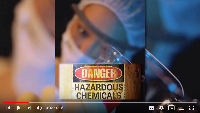 | | | 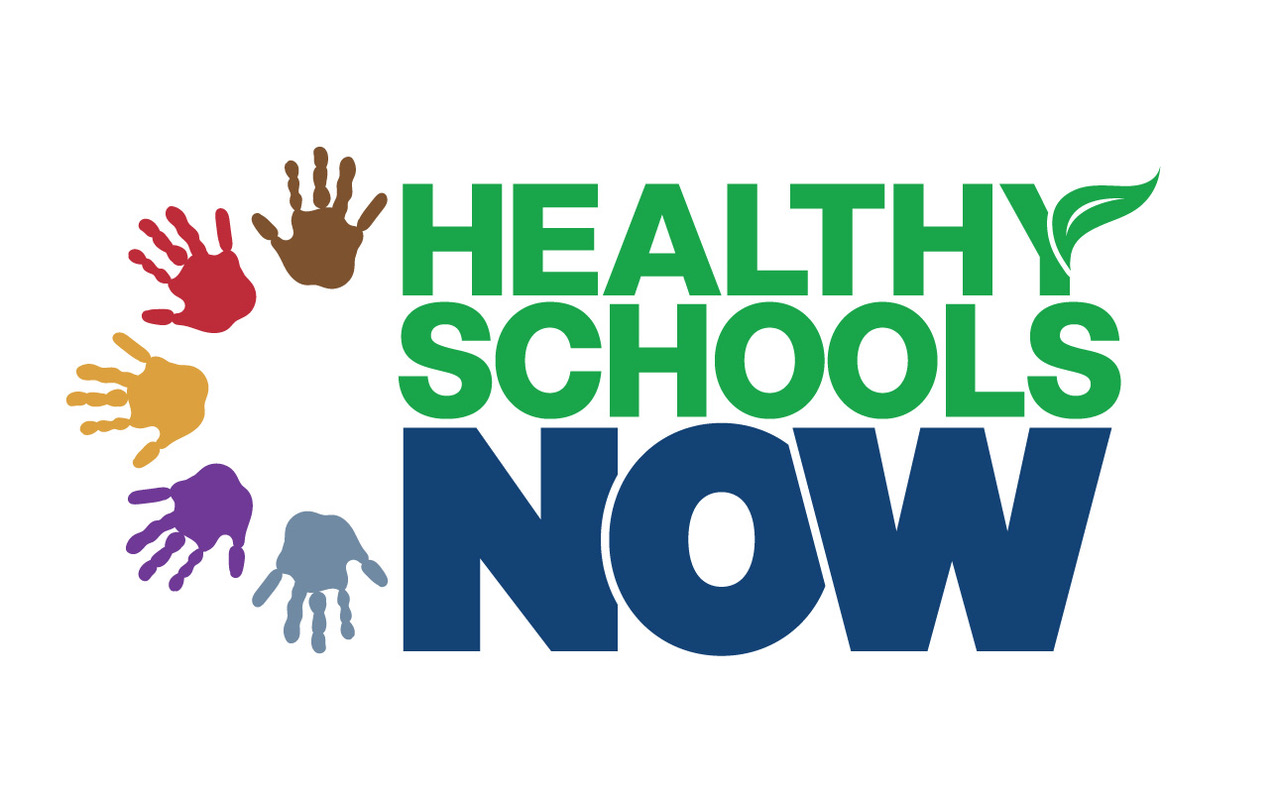 | | | | | 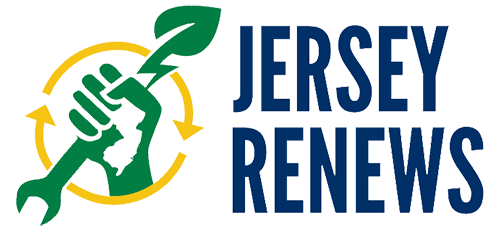 | | | | | | | | |  Back to School, but are we Ready? Back to School, but are we Ready?
A recent national poll of teachers from NPR/Ipsos found overwhelming apprehension about returning to the physical classroom.
According to the poll, eighty-two percent of K-12 teachers say they are concerned about returning to in-person teaching this fall, and two-thirds prefer to teach primarily remotely. Despite a strong desire to return to the classroom to see their students face to face, educators struggle with concerns such as whether or not adequate health and safety plans will be in place to protect staff and students from COVID. In addition, many of our school buildings simply aren’t ready either. On average, New Jersey’s 2,500 school buildings are 50-years-old and are four times more densely populated than office buildings, often with poor indoor air quality and little ventilation making it very difficult to social distance and maintain adequate fresh air. “We don’t want to go backwards, and we certainly don’t want to rush to find out that we were wrong, and that we started too soon, or that we didn’t have the right things in place.” Heather Sorge, campaign organizer for Healthy Schools Now, said in a recent interview with NJ Pen. To read more about steps School Districts can take to ensure we do open safely, read our Call To Action report. We make the case as to why we call on Governor Murphy, the Department of Education, and the Department of Health to develop a comprehensive school infection, prevention, and control plan that districts can adopt with some degree of flexibility in our op-ed here. | | | | | | 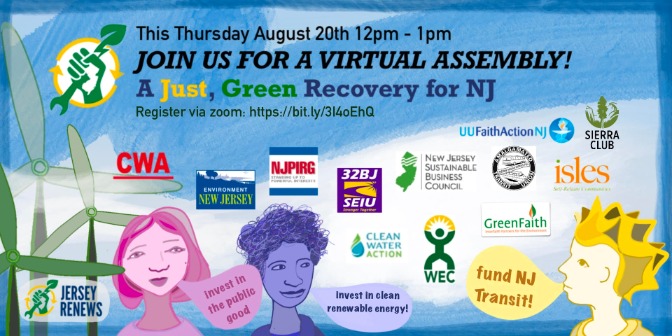 Just, Green Recovery Virtual Assembly Just, Green Recovery Virtual Assembly
On Thursday, August 20, Jersey Renews held A Virtual Assembly: A Just, Green Recovery for NJ. Ahead of the August 25th budget address. More than sixty partners and community members gathered with us to discuss the urgent need for a state budget that centers communities and workers, not corporations and invests in a future safe from health, economic and climate catastrophe for us all. We heard from State Assemblyman Zwicker and labor, environmental, faith and community leaders on the following core principles for a just, green budget: - Invest in clean and renewable energy -- no more raids to the Clean Energy Fund!
- Fund NJ Transit to keep workers and riders safe
- Protect workers and our environment -- fully staff our state agencies
- Invest our public dollars in the public good, and raise that money through a just tax structure
Our next step is to make sure the state legislature hears loud and clear that New Jerseyans demand a budget that will keep us safe from health, economic and climate catastrophe. Please add your voice to our new petition. We know that this work is just beginning, and we are in it for the long haul. Our vision of a just, green recovery needs to leave no worker and no community behind. We want to ensure that the voices of your communities and your members are included in our Just, Green Recovery campaign; If you or your organization would like to connect, please reach out to Berenice at btompkins@njwec.org. Watch the recording of the Assembly on our Youtube page. | | | | 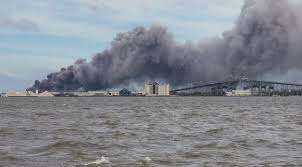 Chlorine Fire in LA During Hurricane Laura Chlorine Fire in LA During Hurricane Laura
On August 27, as Hurricane Laura ripped through Louisiana a chlorine fire erupted at BioLab Chemical manufacturing facility in West Lake. According to State Fire Marshal H. “Butch” Browning environmental regulators didn’t detect chlorine at ground level, however a shelter-in-place was ordered because the risk to the public was unknown. As more extreme weather and flooding is on the horizon due to climate change, it leaves us with questions about the preparation and security of oil refineries and facilities that use hazardous chemicals. New Jersey is one of the fastest warming states. Storms and flooding that used to happen once a century, will become commonplace. The oil and chemical industries are important to the New Jersey economy. But we must not lose sight of the health and safety of workers in those industries, or the well-being of residents in surrounding communities. No one knows when the next storm might hit, when floodwaters might rise, or when extreme heat might cause a disaster we can’t foresee. That’s why it’s more important than ever that industries that handle hazardous substances operate with full transparency and take steps to prepare for emergencies. | | | | | |

COVID-19 Webinar Series: Saving Lives, Protecting Workers Please join us tomorrow on September 1 @ 10am, we are honored to be welcoming special guest Elise Bryant, the executive director of the Labor Heritage Foundation and director of the DC Labor Chorus, who will be with us as we discuss the role of worker's voices in ensuring the health and safety of their workplaces and communities. Click here to register! August Highlights On August 25th, we were joined by Deborah Cornavaca, Deputy Chief of Staff, Office of the Governor, State of New Jersey who gave an update on the Governor’s response to COVID-19. Deborah spoke about the state’s stages for reopening, steps the Governor has taken regarding health and safety in the workplace, and the challenges regarding enforcement of COVID-19 Executive Orders. On August 18th, we were joined by Ashlee Fitch, Director, United Steelworkers’ Tony Mazzocchi Training Center, who discussed the importance of recognizing different kinds of stress, stressful and life-altering events, symptoms of mental health problems and post-traumatic stress disorder, and how important it is to take action to protect your mental health. We were also joined by Tracy F.H. Chang, Ph.D., M.B.A., Associate Professor, School of Management and Labor Relations, Rutgers University, who discussed ways in which workers can equip themselves to deal with the stresses of modern workplaces, especially under COVID19. And on August 11th, we addressed State Action on Covid-19 Worker Protections with Debbie Berkowitz, Worker Health & Safety Program Director, National Employment Law Project who has deep legal and policy expertise, and works on and promotes policies that improve workers’ lives. Jason Yarashes, Lead Attorney and Program Coordinator, Virginia Justice Project for Farm and Immigrant Workers who works to address the systems which keep people impoverished also joined the call as well as Lou Kimmel, Executive Director, New Labor who is working with WEC and other colleagues and partners in the NJ Work and Safety coalition on a worker health and safety council and training safety liaisons in NJ whose goal is to protect against worker retaliation and ensure worker protections.
You can view more in-depth recaps from all past episodes here. | | | | | | | | New Jersey Work Environment Council (WEC)
172 West State Street 2nd Floor | Trenton, New Jersey 08608
609.882.6100 | info@njwec.org | | | | | | | | | | | |